
We all know that woman who radiates an effortless, lit-from-within glow. But killer genetics—and the right serums aside—her secret may lie less in expensive skincare products and more in her grocery basket. That’s right. In many ways, the foods we eat can make or break our skin. It’s time to unlock the potential for a luminous complexion and nourish ourselves from the inside out. With summer fare in mind, we’re dipping into colorful foods for glowing skin. Add these healthy, skin-loving ingredients to your plate—stat. Unleashing your inner radiance (and welcoming the skin of your dreams!) never tasted so good.
Featured image from our interview with Ashleigh Amoroso, by Michelle Nash.
In this article
- Skin That Shines: The Power of Food
- How does nutrition impact the skin?
- What is the best age to eat foods for glowing skin?
- Foods to Minimize for Healthy Skin
- 8 Foods For Glowing Skin
- Less Common Foods For Glowing Skin
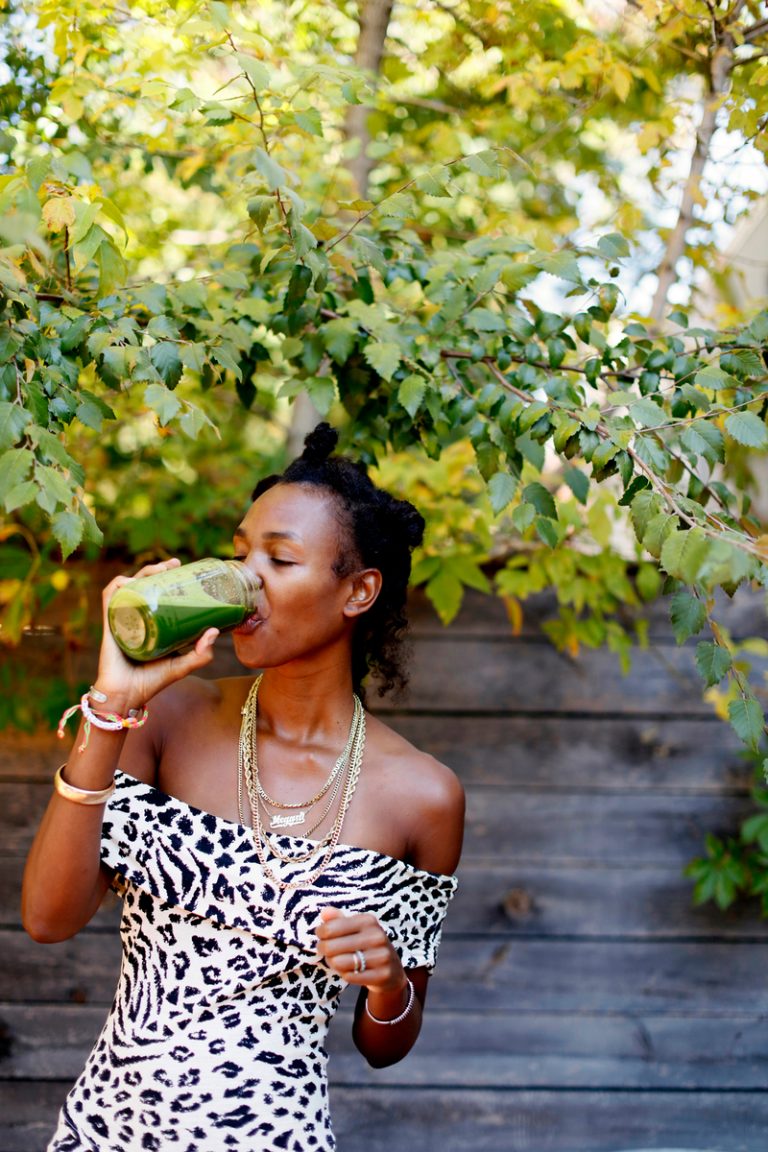
Skin That Shines: The Power of Food
We’ve said it once, but we’ll say it again: what you put on your plate matters. The food you eat has the remarkable ability to transform your skin from dull to dazzling. Picture this—every bite you take delivers a potent blend of vitamins, minerals, and antioxidants to nourish and revitalize your skin cells. In turn, you can actually turn back the clock on cellular aging. And who doesn’t want that? From increasing collagen production, to enhancing hydration and reducing inflammation, nutrition holds the key to unlocking your skin’s potential. Feed your skin to fuel your inner glow!

How does nutrition impact the skin?
Nutrition plays a crucial role in the health and appearance of our skin. Food is energy, yes, but it also nourishes our largest organ—the skin. Here are several ways in which nutrition impacts the skin:
1. Skin function
A well-balanced diet ensures your skin receives nutrients to maintain function. Vitamins A, C, E, and D—as well as minerals such as zinc and selenium—support various processes within the skin, including collagen production, cell regeneration, and protection against oxidative stress.
2. Collagen production
Given its popularity in the wellness world, you’re probably familiar with collagen. Collagen is a protein that provides structure, elasticity, and firmness. All of these are important for skin health! Certain nutrients, such as vitamin C, play a vital role in collagen synthesis. Therefore, consuming foods rich in vitamin C (citrus, strawberries, bell peppers, etc.) helps support collagen production, promoting skin elasticity.
3. Hydration and moisture
Adequate hydration is essential for maintaining skin moisture and preventing dryness. Water and hydration are crucial for healthy skin, as they help flush out toxins and ensure proper circulation, giving the skin a plump and radiant appearance.
4. Protection from environmental damage
Antioxidant-rich foods, such as berries, leafy greens, and citrus fruits, neutralize free radicals and help safeguard the skin against environmental stressors. Fight pollution and UV radiation with foods for glowing skin!
5. Minimizes inflammation and acne
Some studies suggest that highly processed foods, refined carbohydrates, and unhealthy fats may contribute to inflammation and worsen conditions like acne. Conversely, research shows a diet rich in fruits, vegetables, whole grains, and healthy fats may have anti-inflammatory effects and promote clearer skin.
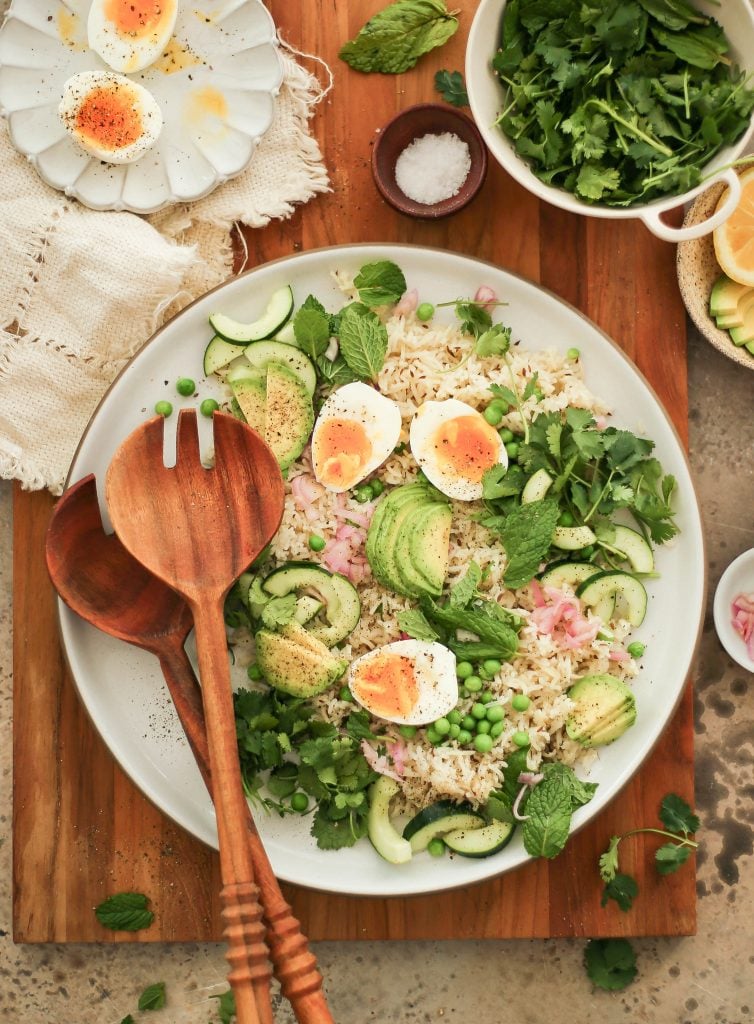
What is the best age to eat foods for glowing skin?
Any age! For some, the first physical signs of aging can appear around age 25: fine lines, wrinkles, brittle nails, fragile hair, and joint problems. While most think of aging in the form of skin appearance, natural aging also affects everything from our energy levels and body weight to heart health, bone density, and more. Ideally, start focusing on eating more foods for glowing skin by your mid-20s. If you missed that boat, don’t stress. It’s never too late to make impactful changes.
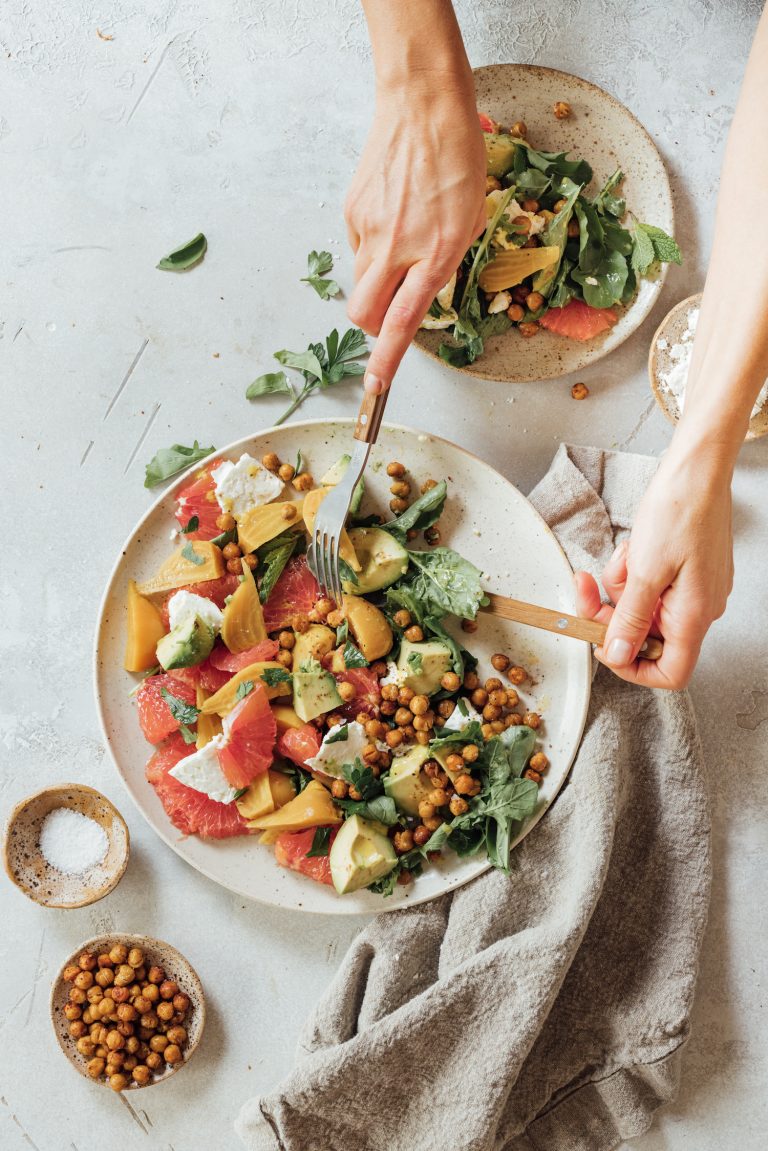
Foods to Minimize for Healthy Skin
While there are no specific foods that universally harm the skin (unless an allergy is present), certain dietary choices may negatively affect it. For example, sugar. When we constantly consume refined sugar, we’re also consuming refined carbs. And this raises blood sugar levels. In turn, insulin levels increase, pushing excess sugar into your cells, which can lead to inflammation—and potentially turn into acne. Unfortunately, you may find that dairy products do the same. Last but not least, be mindful of alcohol and caffeine. Excessive alcohol consumption can dehydrate the skin, leading to redness and inflammation. One too many cups of caffeine can worsen skin conditions, too.
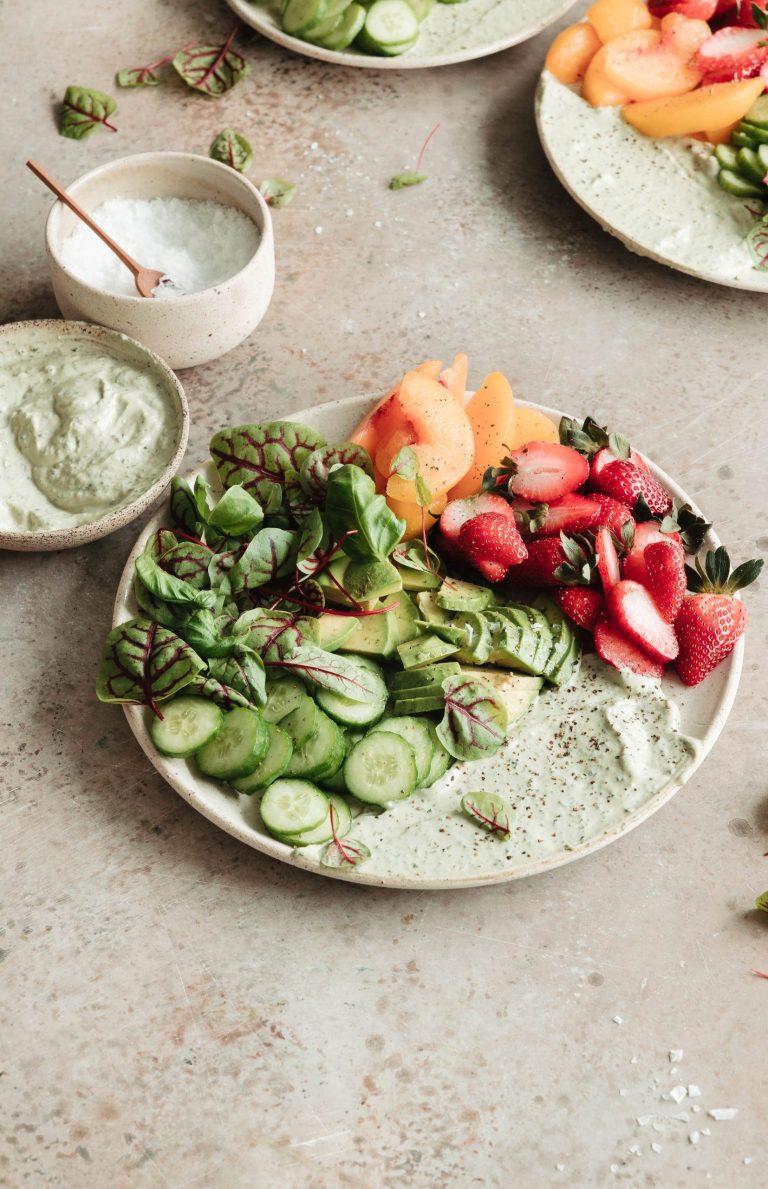
8 Foods For Glowing Skin
Without further ado, below are eight foods to eat for glowing skin. From wintry citrus to creamy avocados, incorporate these ingredients into your next meal plan.
Berries
‘Tis the season for berries! Strawberries, blueberries, and raspberries are packed with antioxidants that help combat free radicals, which are responsible for skin aging. These vibrant fruits are rich in vitamins A, C, and E, as well as anthocyanins, which promote collagen production and protect against sun damage. Whether enjoyed on their own, added to smoothies, or sprinkled over yogurt, incorporating berries into your diet can contribute to a healthier, more luminous complexion.
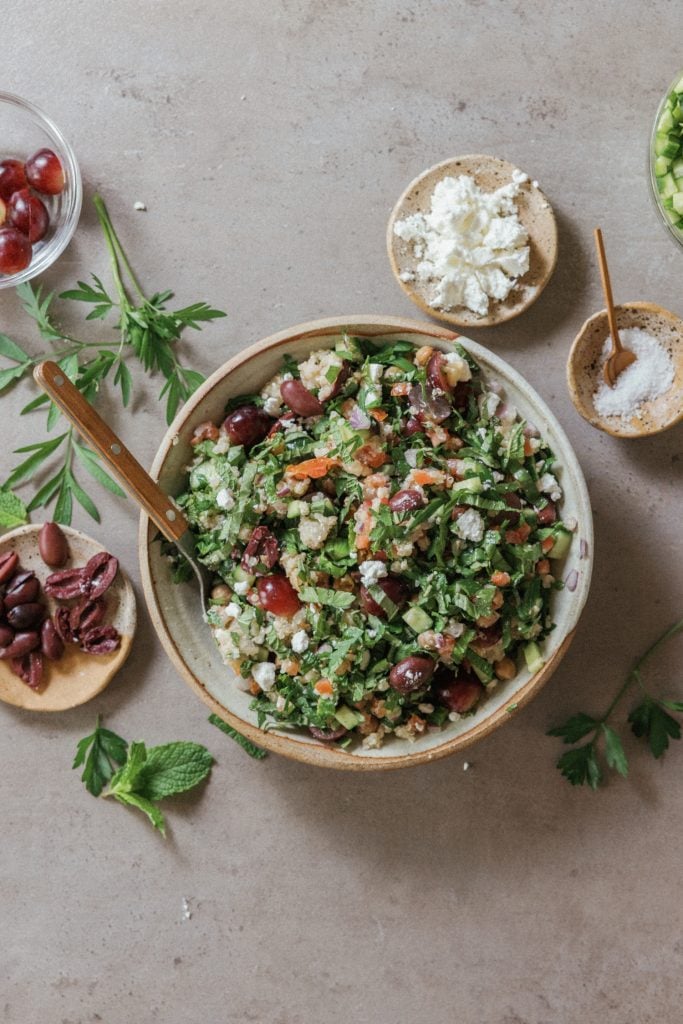
Leafy Greens
Leafy greens—including spinach, kale, and Swiss chard—are nutritional powerhouses. They work wonders for your skin. Packed with vitamins A, C, and K, as well as minerals like iron and folate, these greens help promote a clear and youthful complexion. Moreover, their high water content helps hydrate the skin, keeping it supple and glowing. Enjoy leafy greens in salads, stir-fries, or as a fiber-rich addition to your morning smoothies to reap their skin-loving benefits.
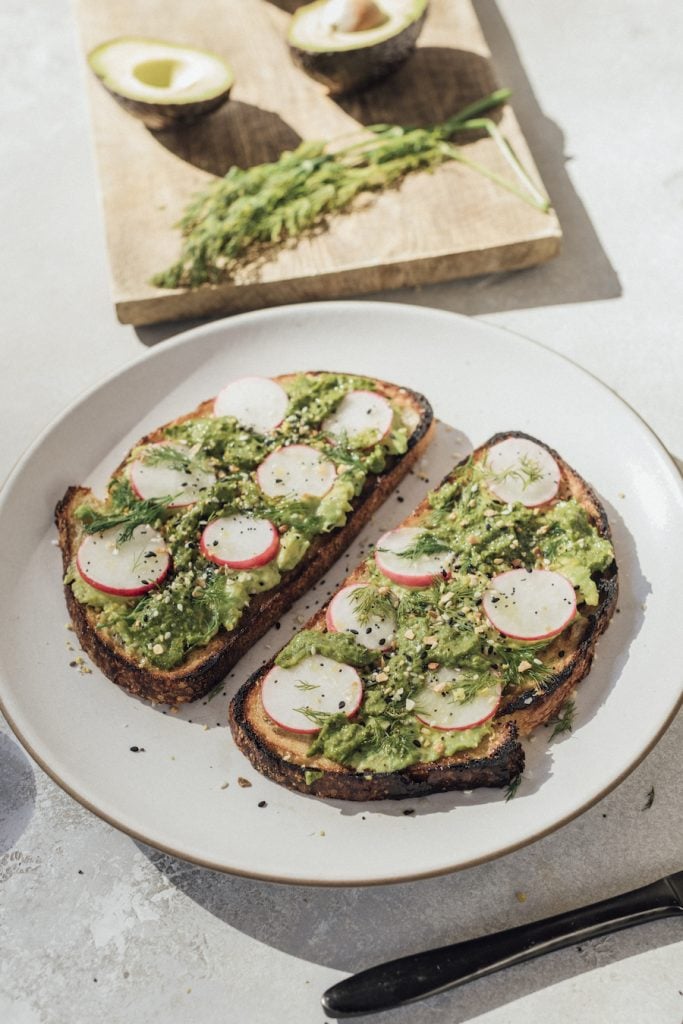
Avocado
Known as a beauty food, avocado is a nutrient-dense fruit that boasts healthy fats, vitamins, and minerals. Their monounsaturated fats help maintain the skin’s moisture levels, resulting in a soft and supple complexion. Additionally, avocados are rich in vitamin E, which acts as an antioxidant, protecting the skin from oxidative damage and promoting skin cell regeneration. Enjoy avocado slices on toast, add them to salads, or blend them into creamy sauces for a radiant glow.
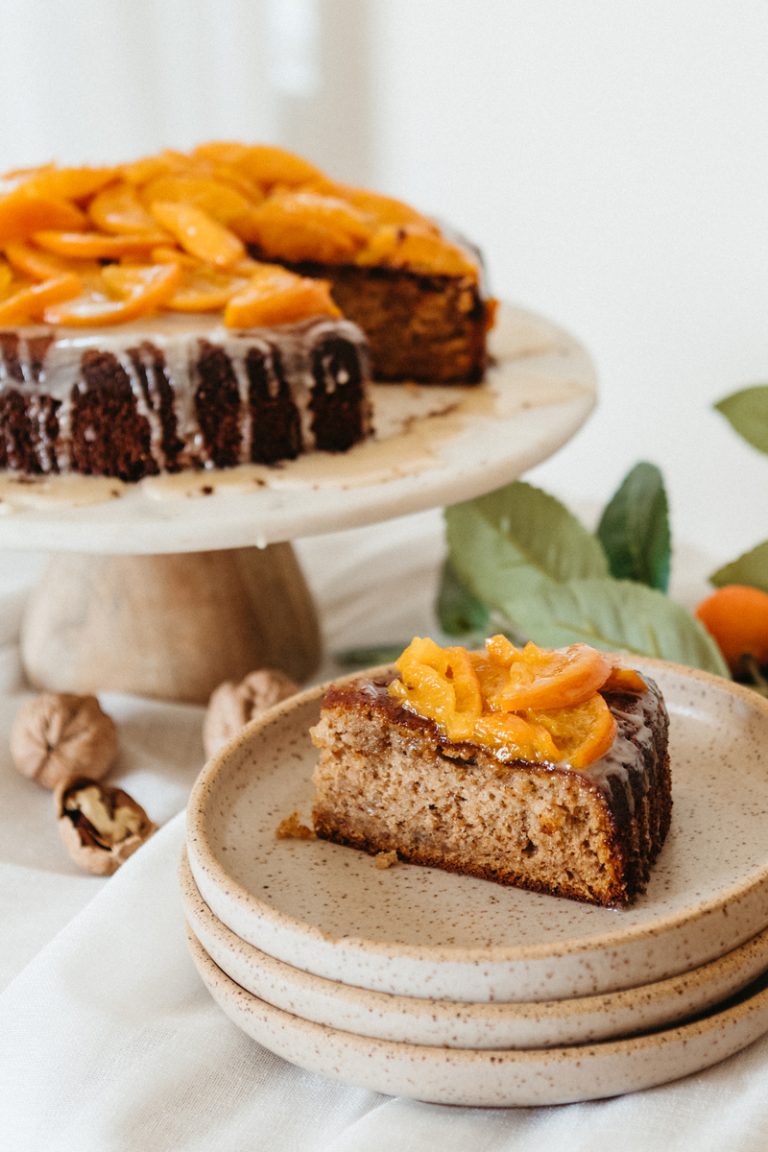
Nuts
Nuts are an incredible source of essential fatty acids, which help maintain skin elasticity, promote cell turnover, and reduce inflammation. Almonds, specifically, contain vitamin E—an antioxidant that helps protect the skin from free radicals. Vitamin E also helps maintain skin moisture. Furthermore, walnuts are rich in omega-3 fatty acids, which are essential fats that help maintain hydration and overall skin health. Lastly, Brazil nuts are an excellent source of selenium, a mineral that plays a crucial role in antioxidant defense systems. Selenium helps protect the skin from sun damage. Snack on raw nuts as a blood sugar-friendly snack or toss them into your favorite granola recipe.

Seeds
Like nuts, seeds provide essential nutrients for skin health. They’re rich in vitamins E and zinc, which aid in healing damaged skin and protecting it from environmental stressors. Chia seeds and flaxseeds are rich in omega-3 fatty acids, which help reduce inflammation and maintain the skin’s moisture levels. They also contain antioxidants, fiber, and selenium. Furthermore, pumpkin seeds are packed with zinc, magnesium, and iron—hello, skin cell regeneration! Sprinkle seeds over your salads to nourish your skin from within. You can also add seeds to your go-to muffin recipe for added nourishment and texture.

Citrus
Citrus fruits, including oranges, grapefruits, and lemons, are renowned for their high vitamin C content. This essential vitamin plays a key role in collagen synthesis, promoting skin elasticity and reducing the appearance of fine lines and wrinkles. Vitamin C also possesses potent antioxidant properties, protecting the skin from damage caused by free radicals. Start your day with a refreshing adrenal cocktail, or incorporate slices of these fruits into your water or salads for a radiant complexion.
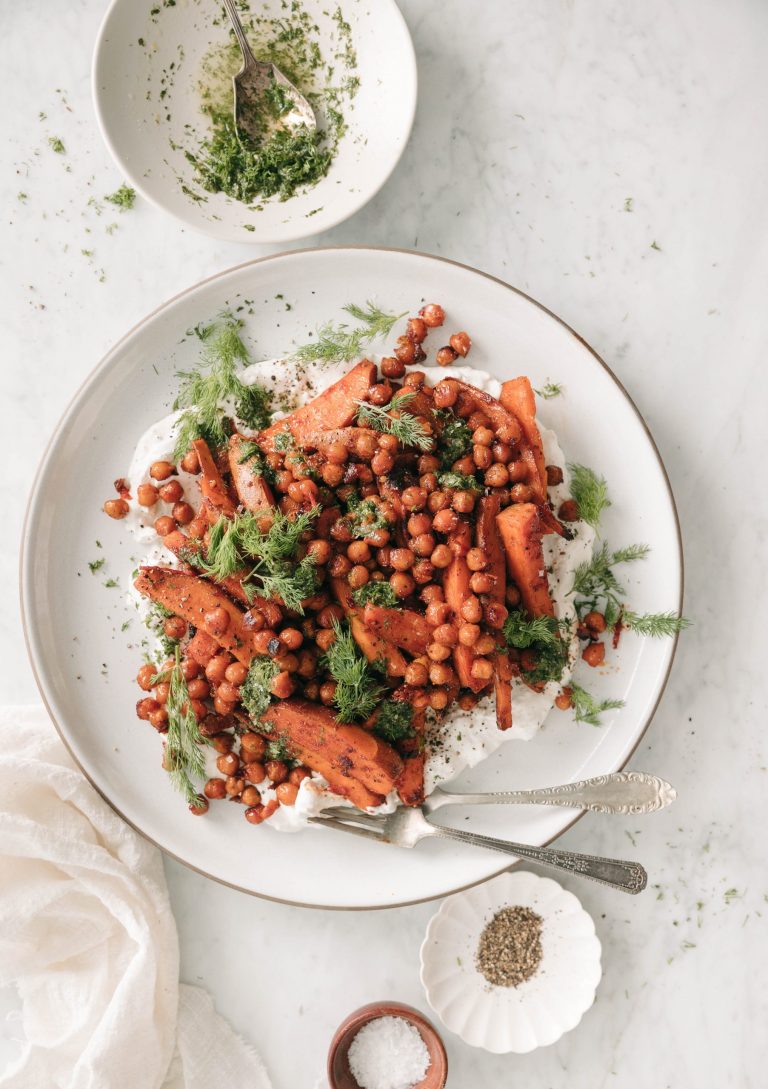
Sweet Potatoes
Packed with beneficial nutrients, sweet potatoes provide multiple skin-enhancing properties. Rich in beta-carotene, sweet potatoes are converted into vitamin A, which supports skin cell production, turnover, and a healthy complexion. Additionally, their vitamin C content helps shield the skin from free radicals and oxidative stress, minimizing signs of aging (and restoring radiance!). Last but not least, their fiber content aids in digestion, contributing to a clearer and healthier complexion. Deliciously sweet and versatile, sweet potatoes are tasty in everything from frittatas to salads.
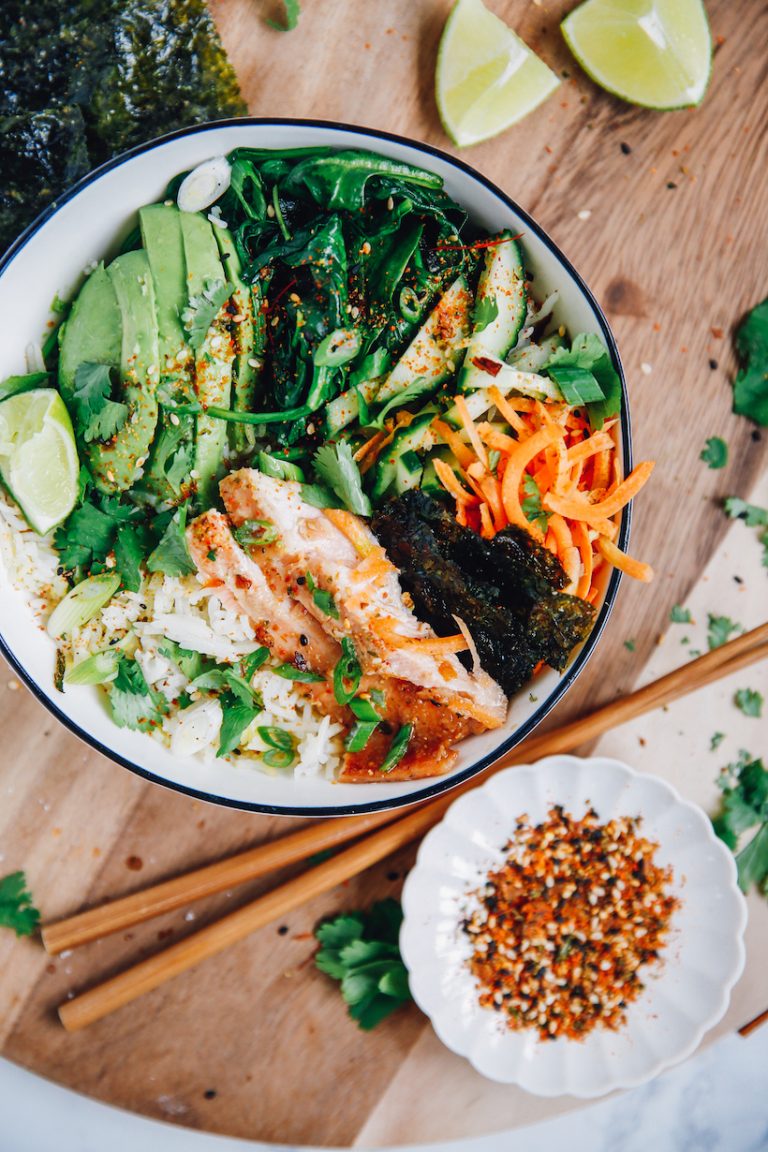
Seaweed
Seaweed—such as nori, kelp, and spirulina—is rich in vitamins, minerals, and antioxidants. It provides essential minerals like zinc and selenium, as well as vitamins A and E, which promote skin health and combat oxidative stress. Additionally, seaweed is high in vitamin C, aiding in the production of collagen, promoting skin firmness, and reducing the appearance of fine lines and wrinkles. We love seaweed’s skin-nourishing nutrients in traditional sushi rolls, deconstructed sushi bowls, and roasted as a snack with avocado.
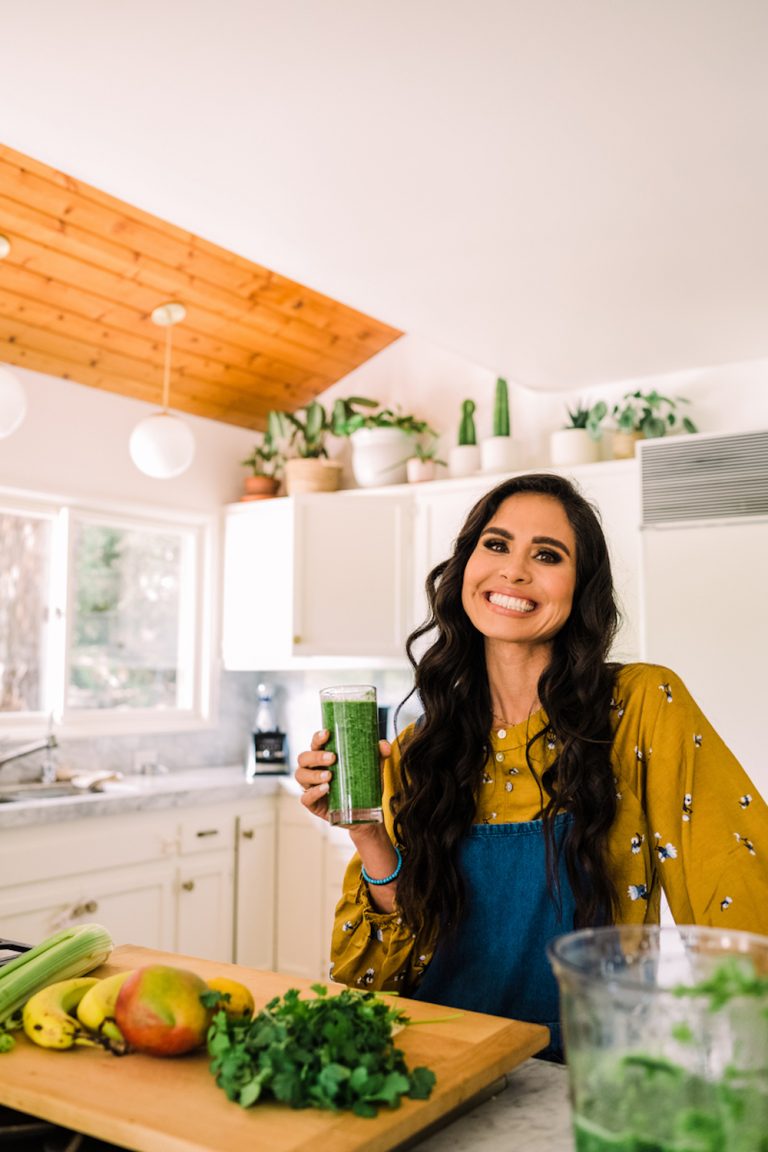
Less Common Foods For Glowing Skin
Popular foods aside, there are also less commonly known ingredients that support glowing skin. If they’re available to you, incorporate foods like aloe vera (supports hydration and detoxification), papaya (encourages healthy digestion), fresh turmeric (to lower inflammation), and sauerkraut (aids in a diverse gut microbiome). When in doubt, diversify! Skin-loving ingredients come in various colors, shapes, and sizes.
It’s important to note that while nutrition is a vital aspect of skin health, it should be complemented by a holistic skincare routine, sun protection, and other lifestyle factors like stress management and sufficient sleep. Consulting with a healthcare professional or a registered dietitian can provide personalized guidance on optimizing nutrition for optimal skin health.



